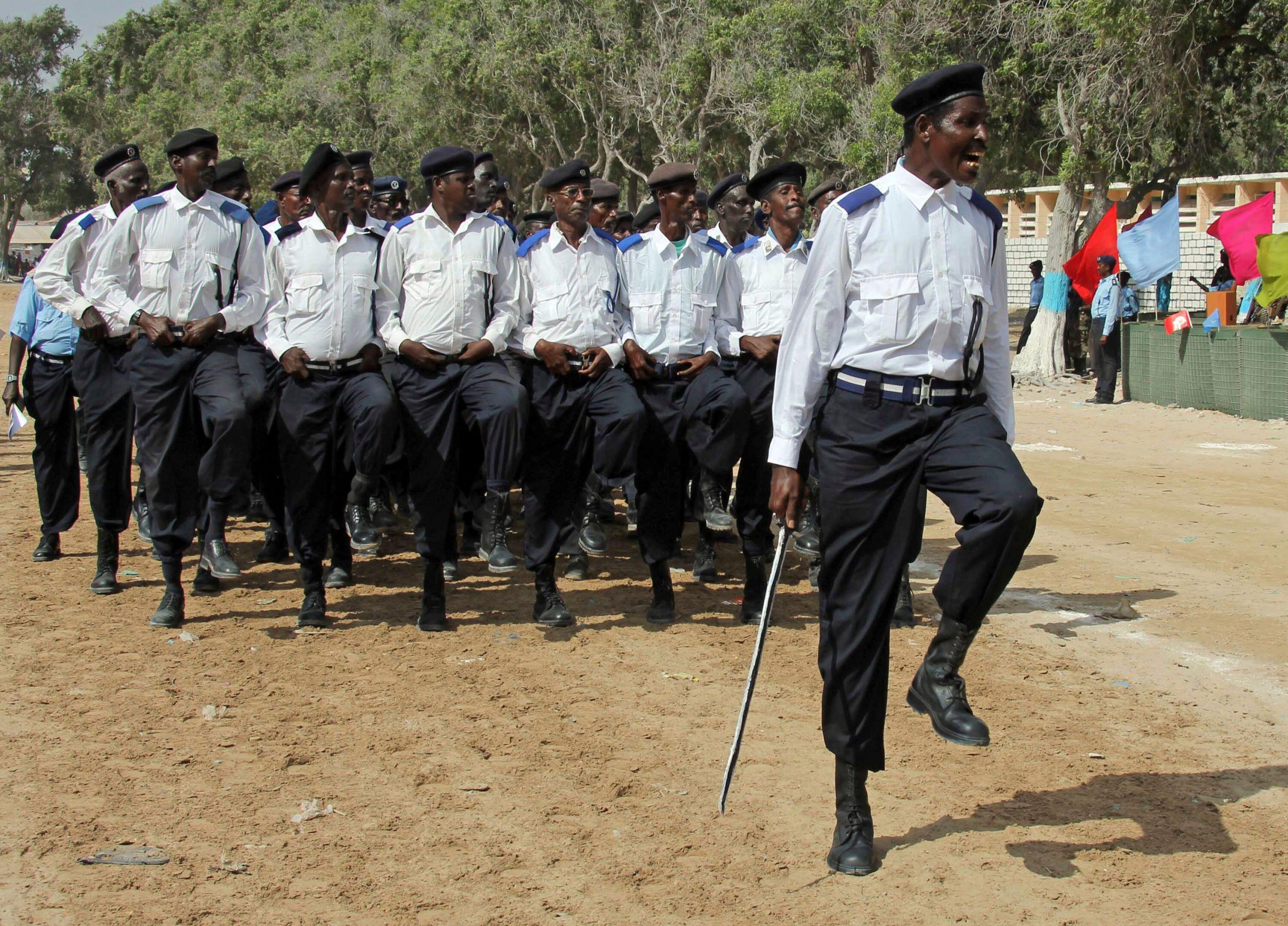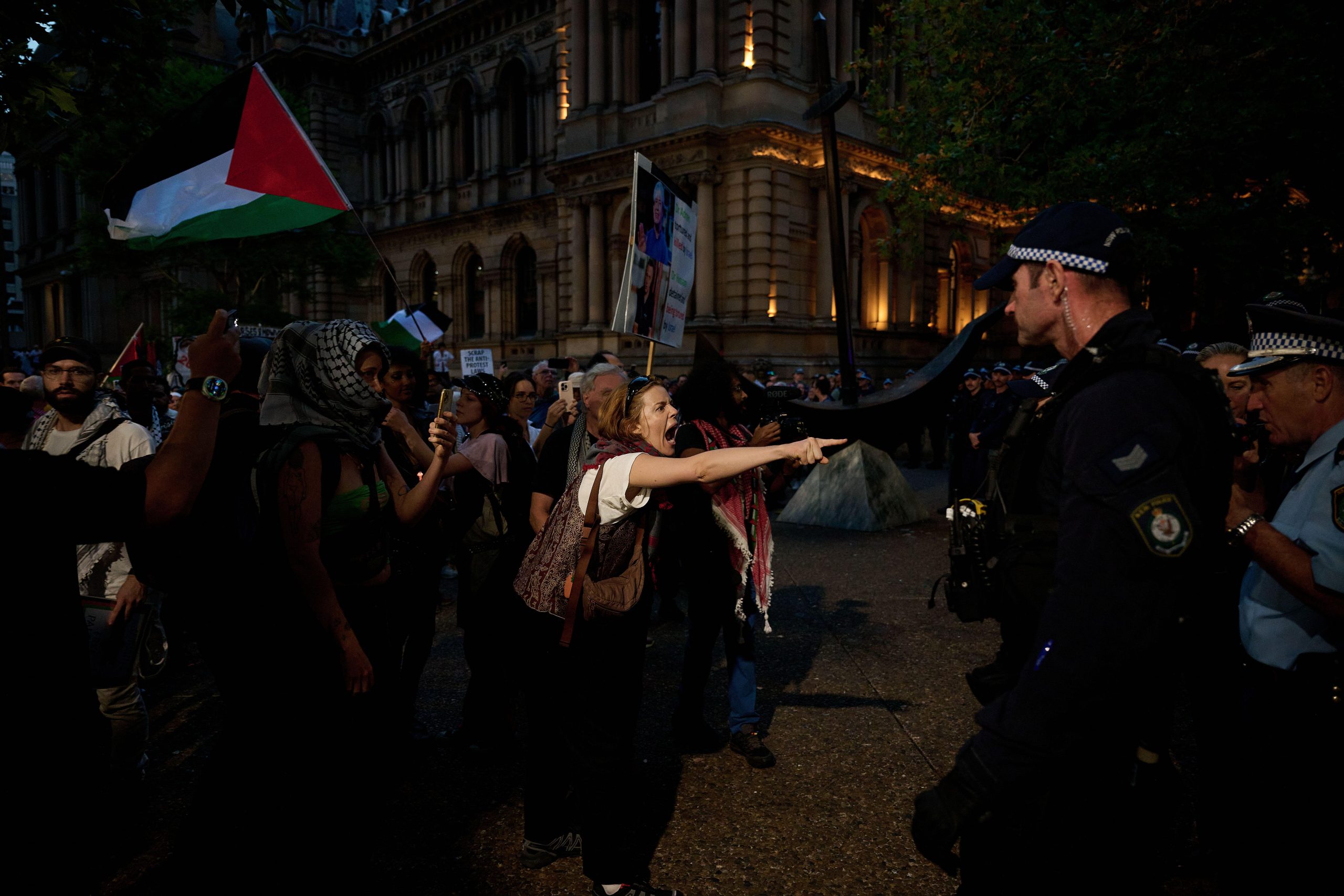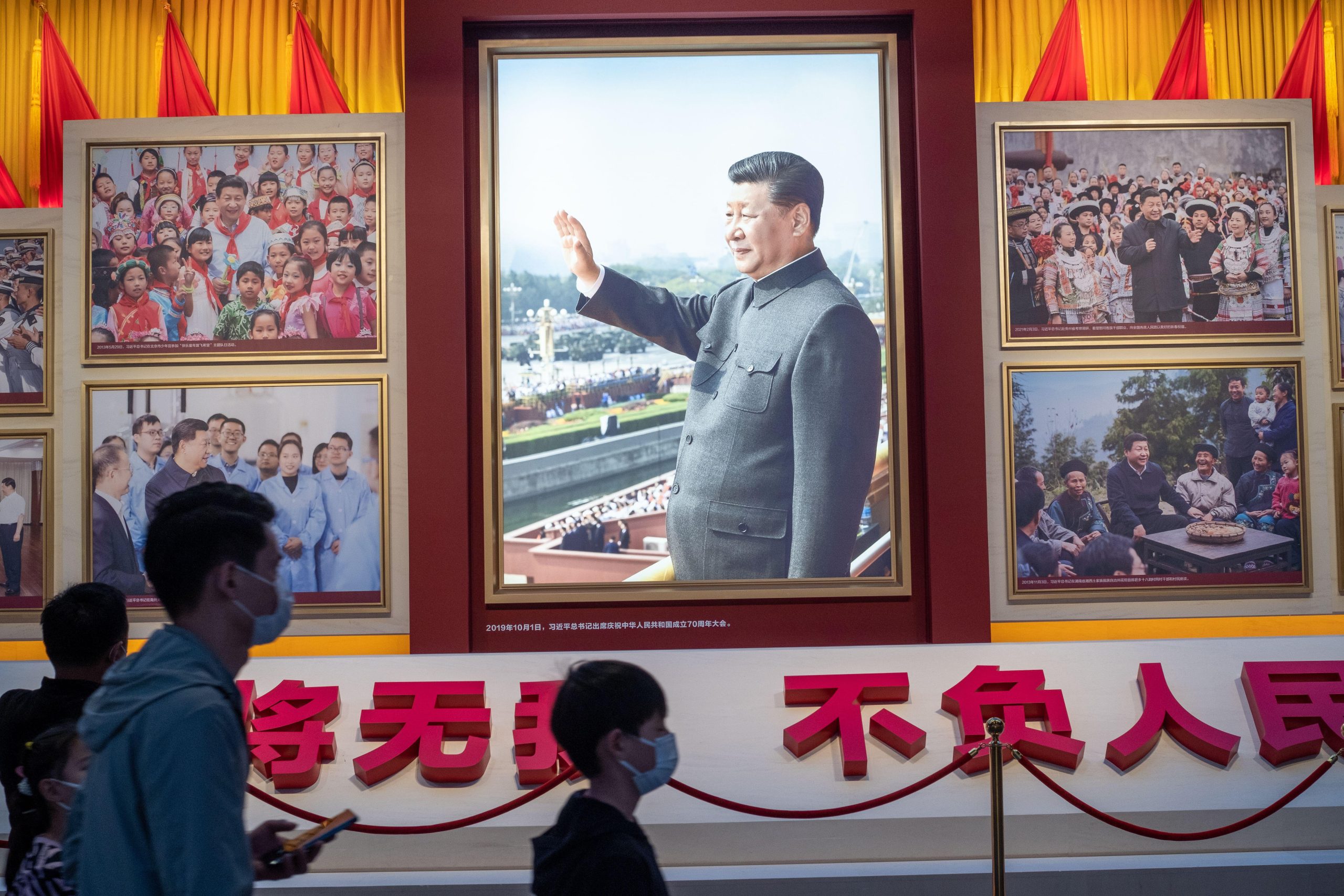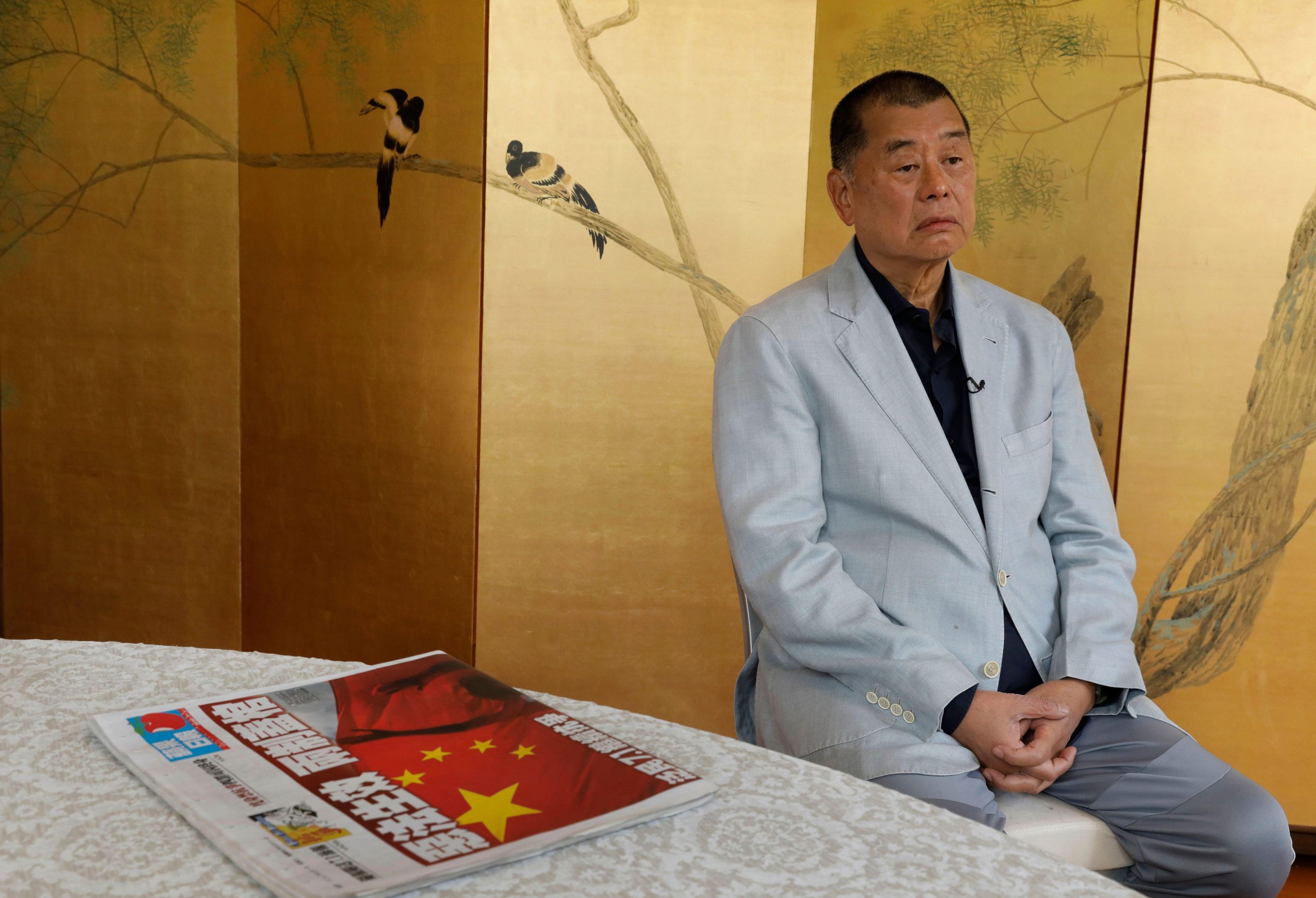This article first appeared in Volume 54, Issue 2 of our print edition of Index on Censorship, titled Land of the Free?: Trump’s war on speech at home and abroad, published on 21 July 2025. Read more about the issue here.
Speaking out about societal issues such as poverty, hunger and police abuse in Somalia is perilous. Both journalists and ordinary citizens practise self-censorship to avoid trouble. The country remains one of the most dangerous places in the world for journalists. More than 80 media workers have been killed since 1992, and dozens have been forced to leave the country due to threats on their lives.
A new directive issued by the government has worsened the situation by further restricting the media and the public from posting or broadcasting any information related to “insecurity” in the capital, Mogadishu. According to the minister of information, culture and tourism, Daud Aweis, those who violate this directive could face “legal consequences, including prosecution in court and severe punishment”.
Questioning government officials about security failures or attacks by the al-Shabaab militant group can land journalists or citizens in jail – as can highlighting issues such as poverty.
On Thursday 20 February at midday, Sayid Ali, a tuk-tuk driver, was waiting to pick up a client for a short ride into Mogadishu city centre when a group of armed police officers confronted him. They had his photo on their phones. Days earlier, Ali had spoken to local journalists about the corruption that has left many Mogadishu residents, including tuk-tuk drivers, struggling with hunger.
Ali, who is 46 years old and a father of five, had gained media attention under the nickname “Saan Miyaa”, which literally means “Is this how it is?” – a phrase expressing frustration over the widespread corruption that seems endless.
In an interview earlier that week with Shabelle TV, he had said: “People in Mogadishu are surviving on only a cup of tea every 24 hours because they have nothing to eat.” He blamed widespread corruption among government officials for driving up inflation, making it nearly impossible for ordinary citizens to afford even a single meal each day. He also complained about police extortion and the bribes they demanded from the city’s struggling tuk-tuk drivers.
External factors have made the problem worse. Somalia is one of the countries hardest hit by US president Donald Trump’s foreign aid freeze, with the termination of the US Agency for International Development (USAID) programme. The aid cuts have worsened food insecurity, reducing critical relief efforts at a time when drought, conflict and displacement were already pushing millions towards famine.
Following his arrest, Ali was taken to a police station and locked in a cell.
“They asked me why I was criticising the government. I said I was only describing the reality of our situation,” he told Index.
One officer allegedly turned the interrogation into a warning, telling Ali that he could be charged with “insulting the president” because his remarks directly implicated Somalia’s leadership. If found guilty of that, he could be imprisoned for between six months and three years.
“I was scared and did not know what to do,” he said. He was released after a day in detention but was given a final warning.
“We know you talk too much,” an officer allegedly told him. “But we warn you, stop talking about the president, or you will rot in jail.”
A police spokesperson, Abdifatah Adan Hassan, did not comment on Ali’s arrest. Ali was re-arrested and re-released in May, after speaking out publicly again.
Police brutality
This case is just one among dozens of arrests, harassment incidents and even killings targeting those who publicly criticise the government or the armed groups responsible for plunging Somalia into turmoil.
A few days before Ali’s arrest, a young man was reportedly killed in Afgooye, about 30km from Mogadishu, simply for sharing a Facebook post about police brutality. According to a family member who requested anonymity, Ismail Moalim, who was 27, was active on Facebook and had previously worked with the police.
“The police demand bribes from the families of detainees, and when they receive nothing, they beat them mercilessly,” the family member told Index.
The specific video that led to Moalim’s death, which has since been deleted, showed a police officer in Afgooye beating a young detainee. The footage was allegedly leaked online by a whistleblower, then shared more widely on Facebook.
“Ismail had only shared the video because he had many followers. Unfortunately, the officer involved in the beating knew him personally and came to our house. He shot Ismail twice in the head. Ismail died on the spot,” the family member said.
Impunity is high in Somalia – cases of murder are rarely investigated and perpetrators rarely arrested, especially when victims belong to a less influential group. Ismail’s case is a clear example of this, as he belonged to the Bagadi minority group, which has little influence among authorities or politicians.
The plight of female journalists
Women journalists are at particular risk. On the morning of Saturday 15 March, the National Intelligence and Security Agency (Nisa) raided the home of journalist Bahjo Abdullahi Salad in Mogadishu. Salad, who works for local news station RTN TV, had posted a video clip on her TikTok account showing rubbish left in a residential area after a Ramadan iftar feast attended by prime minister Hamza Abdi Barre and his entourage.
“Cleanliness is half of faith. The rubbish left here could pose a health risk to the general public, particularly young children who play in the area. I ask government officials to please clean up your waste,” Salad said in her viral video.
Soon after the video was published, armed Nisa officers entered Salad’s family home and took her away. Her frightened relatives raised the alarm, and fellow journalists quickly reported the incident online.
Nisa has a notorious reputation, with many of its officers being former militants. Three months earlier, another female journalist, Shukri Aabi Abdi, was dragged and beaten in Mogadishu by Nisa officers while covering protests against forced evictions. Her camera operator, Ali Hassan Guure of Risaala Media Corporation, was arrested, and their footage was deleted.
Unlike Abdi, Salad was not physically harmed. Later that day, her sister found her in a police station cell in the Wardhiigley district. She was released without charge but was forced to delete the video of the rubbish as a condition of her freedom.
“My family told me to accept their demands because they would not release me otherwise,” Salad told Index.
Freedom of expression at risk
At the Somali Journalists Syndicate (SJS), we track deleted content from journalists and, when possible, republish it as evidence in our ongoing documentation of media freedom violations in the country, so we have now reposted Salad’s clip.
These incidents highlight the deteriorating state of freedom of expression in the country. In Somaliland, a northern Somali region that declared independence in 1991, authorities shut down the privately-owned Universal TV on 12 February, accusing the station of “violating an agreement” with the government and breaching “Somaliland’s nationhood”. The Ministry of Information, Culture and National Guidance ordered all cable networks to remove Universal TV, banned the use of its logo, and instructed local advertisers to cancel their contracts with the station. Universal TV remains closed.
Later in February, the governor of Somaliland’s Togdheer region ordered the arrest of three journalists in Burao – Said Ali Osman of Sky Cable TV, Ayanle Ige Duale of Sahan TV and Abdiasis Saleban Sulub of KF Media – after they reported on his ties to local clan militias and the destruction of a water reservoir belonging to herders near Burao.
Freedom of expression in Somalia remains highly restricted and dangerous to navigate due to government repression, threats from armed groups and impunity for crimes against journalists. Killings and attacks on journalists rarely lead to justice, as perpetrators – whether government officials, security forces or militants – are almost never held to account.
The situation for journalists is getting worse. In March, police in Mogadishu arrested 19 journalists from both local and international media – the largest number yet in a single day in Somalia. They were rounded up onto a truck and taken to a police station, where their camera equipment was confiscated and their footage was deleted before they were released.
They had been covering the aftermath of an al-Shabaab bomb attack on President Hassan Sheikh Mohamud’s convoy just outside the presidential palace on 18 March. Following the arrests, police also raided the local radio station, Risaala, due to its coverage of the bomb attack. Armed officers stormed in and shut down the radio transmitters, arresting five journalists.
CCTV footage from the radio station’s offices showed the police forcing their way into the building before taking the journalists into custody. They were released the same day after being warned that they “should not say anything about insecurity”.
What is even more troubling than the raid itself is that the police commander who led it is a former al-Shabaab terrorist commander who defected to the government and was later promoted to a position of authority in Mogadishu.
While the president survived the al-Shabaab bomb attack, several civilians were killed, including journalist Mohamed Abukar Dabaashe, whom I mentored when he was a trainee at Radio Risaala, where I was chief editor in 2011.
Aged only 31, Dabaashe was in his home when the massive bomb exploded, causing the entire building to collapse. His body was found hours later. He was laid to rest the following day, as family and colleagues, overcome with grief, gathered at Madina Hospital.
Threats growing
As always, hope for accountability for the young journalist’s murder has faded away. When al-Shabaab bombs kill civilians, including journalists, and the government also targets them, accountability becomes impossible. Those brave enough to continue reporting face threats from all sides.
These threats are only intensifying. Between 22 and 24 May, 15 journalists were arrested in 48 hours, with the SJS recording a disturbing spike in arbitrary detentions, equipment confiscation and the obstruction of media workers by security forces. On 25 May, a media worker for the privately-owned Mogadishu television network Astaan TV was also killed – Abdifatah Abdi Osman was riding his motorbike on his way to work when he was shot by a hotel security guard.
When physical violence or criminal prosecutions are not used, legal and financial threats can be. I have faced legal threats for writing critically about a Somalia-based bank linked to the president.
The threats against me, which began in January, are part of the long-term persecution I have endured as a journalist and secretary-general of the SJS. A London-based law firm working on behalf of the bank threatened to sue me if I did not delete my social media posts and issue the bank an apology. The same bank, which has ties to the Somali government, has previously targeted both me and SJS, at one point freezing the SJS’s bank accounts and blocking its funding.
Somalian journalists face assaults from the authorities, opposition and militant groups, and big businesses. Under this constant attack, it increasingly feels that we have little recourse.






